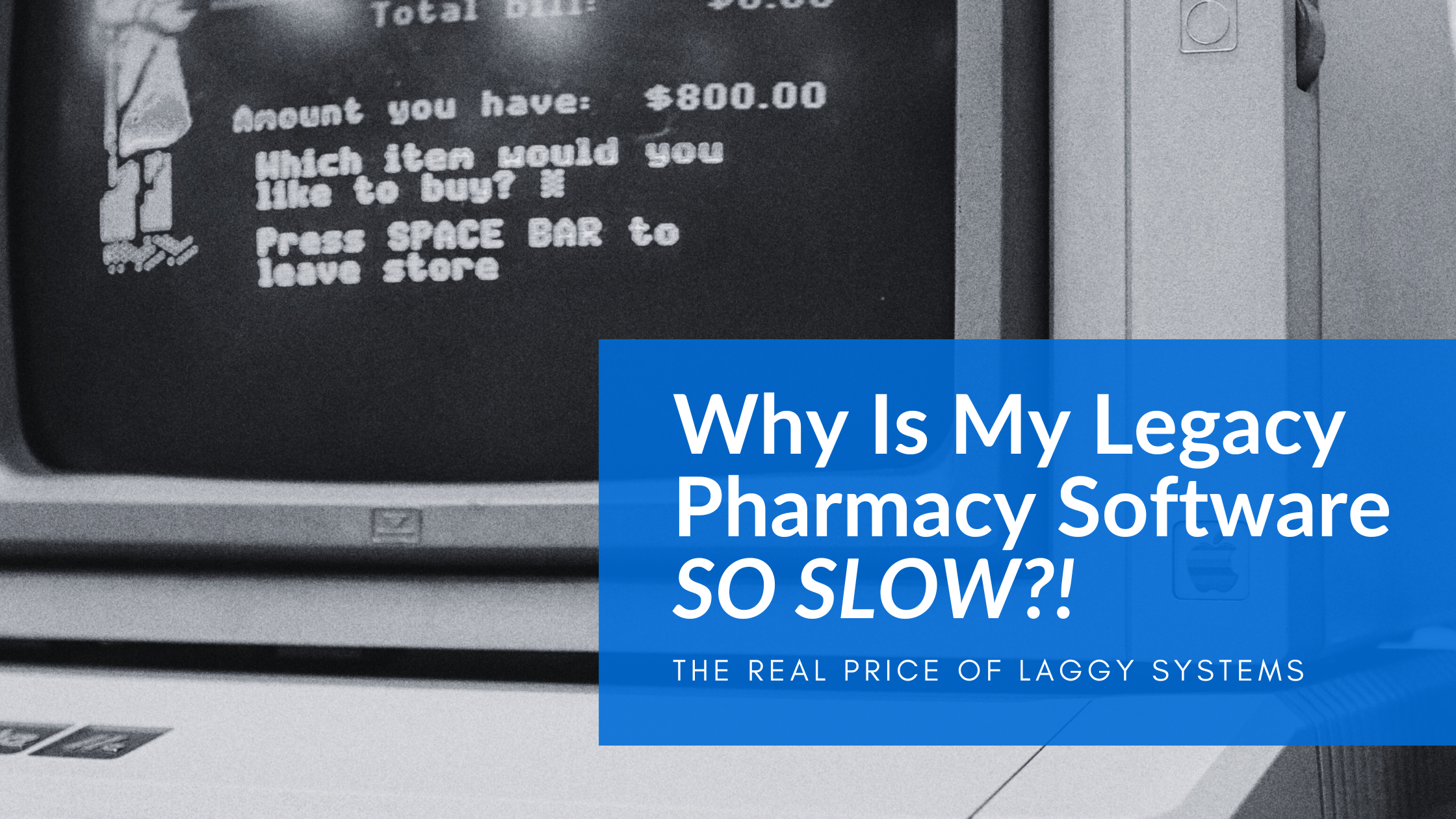
Why Is My Pharmacy Software So Slow????
Slower Systems = More Seats = More $$$
You log in.
The screen lags for a second. You click the same button 3 times just to check a patient profile. Nothing happens. So you click again. And again.
Eventually it loads, but now someone else is trying to jump in and the whole thing locks up.
Meanwhile, the queue keeps growing and everyone's frustrated. It’s only 9AM.
So you do what most pharmacies end up doing: you bring in another tech to pick up the slack. Then maybe another. Not because the work actually requires more people, but because your system is slowing everyone down.
And here’s where it gets expensive: Every new user means another seat, another license, and another charge.
You’re not just hiring help. You’re paying your software vendor more money every time your team needs a workaround.
And somehow… nothing gets faster.
Because that’s not just bad design, it’s part of their business model.
The Double-Dip: Now Pay to Fix It
And then it gets worse...
The same vendors who sell you slow, complex software then turn around and charge you extra for the “solutions” to those exact problems.
Want faster claims processing? That’s an upgrade. Want automation to cut down the endless clicking? That’s another module.
Need dashboards so you can actually see what’s going on without pulling reports by hand? You guessed it, more fees.
These “fixes” should be part of the core product. They’re not bells and whistles. They’re basics that help your team work faster and smarter.
But instead of building a solid system from the start, these companies design slow, complicated platforms that force you to pay extra to even barely keep up.
It’s like selling you a car with square wheels, and then charging you to replace them with round ones.
And because these upgrades often come as “optional add-ons,” they fly under the radar during initial contract talks until you’re already locked in and the bills start piling up.
This creates a vicious cycle: The software is slow → You pay for add-ons or additional help to speed things up → The vendor profits from both the base system and the upgrades.
The Incentive Problem
If a software company makes more money when your workflow breaks down, why would they actually fix it?
When every new user login means another check in their pocket, they’re financially rewarded for keeping things complicated, slow, and inefficient.
They’ll talk a good game, promise flexibility, scalability, and customization, but the truth is in the fine print.
More users mean more licenses.
More add-ons mean more fees.
More friction means more reasons to keep you paying.
And when you ask about slow performance, don’t expect sympathy.
“Oh, must be your internet connection,” they say. Because blaming you is easier than fixing the problem.
That’s the incentive problem: They profit most when your system frustrates you enough to buy more of what they’re selling.
It’s a business model built on creating pain points, not solving them.
If the vendor only made money when your team actually worked faster and smarter, they’d build better software.
But as it stands, your struggle lines their pockets.
Our Take
Scaling up shouldn't mean multiplying your costs while doubling your headaches.
At Scriptly, we believe that your vendor’s success should be tied to your success, not the other way around.
Per-seat pricing doesn’t just charge you for growth; it incentivizes waste.
It rewards vendors for keeping things slow, forcing cumbersome workarounds, and bloating your team with extra licenses just to keep operations moving.
And when those vendors charge you for the “solution” to the problems they helped create? That’s not innovation. It’s extortion disguised as a feature update.
This model doesn’t serve pharmacies. It serves shareholders.
We think it’s time for a different kind of partnership, one where the software earns its keep by helping your pharmacy move faster and leaner.
Because at the end of the day, your success shouldn’t come with a hidden price tag.
